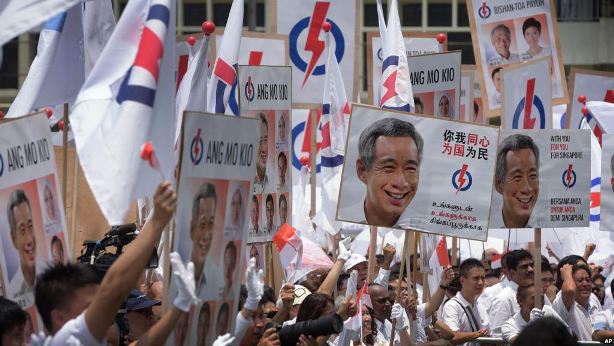Dominance Of The Ruling Party To Be Tested As Singapore Elections Start
Voting in the Singapore elections started recently. While the vote is considered as the most demanding test for the dominance of the ruling party, it is expected to win. The island-state became an international financial hub after years of development. It features well-maintained parks, high living standards and immaculate malls and streets.
However, property prices have increased due to its success and the arrival of foreign workers. Public transport also became crowded and the wealth gap started to widen. The situation resulted to exasperation among residents and surveys have consistently ranked the city as among the most expensive in the world.
This dissatisfaction encouraged opposition parties as they struggled to increase the number of seats they can get in parliament. All the seats in parliament are up for grabs in the Singapore elections, which is the first time it happened since the country gained independence in 1965. Healthcare, housing and employment became the focus of opposition parties in their campaign.
One polling station located in the central district saw around thirty mostly elderly residents lining up before the start of voting. Over 100 people were also gathering outside another polling station in the western part of the city. A retired Singaporean said while the government is shaky at this time compared to before, all governments experience this and may sometimes make mistakes. But, the ruling party is treating them well, the 62-year-old citizen added.
Initial results are expected to come out a few hours after the close of the polls at 8 PM. The People’s Action Party or PAP of Prime Minister Lee Hsien Loong has a good foundation and is expected to acquire a majority in parliament. However, opposition parties have started to challenge the dominance of the PAP, which ruled the country since it became independent.
Lee said during his last rally that they are showing their report card in the elections and they are proud of it.
While the share of the vote of the PAP went down to 60.1 percent during the last Singapore elections in 2011, it was able to hold on to 79 out of the 87 seats in parliament. The Workers’ Party, the main opposition party, held 7 seats while one seat was vacant. The vacant seat was held by former Prime Minister Lee Kuan Yew, who passed away in March.
The PAP is banking on patriotism inspired by the golden jubilee of the city-state along with respect for the father of the current prime minister to help it win majority of the seats in parliament. Prime Minister Lee unveiled a healthcare insurance program worth billions of dollars for the elderly as well as introduced measures in cooling the property market after the 2011 elections. Lee also limited the influx of foreign workers.
No predictions were made since opinion polls are illegal. Nearly all of the 2.5 million citizens can vote in the Singapore elections where voting is required.
